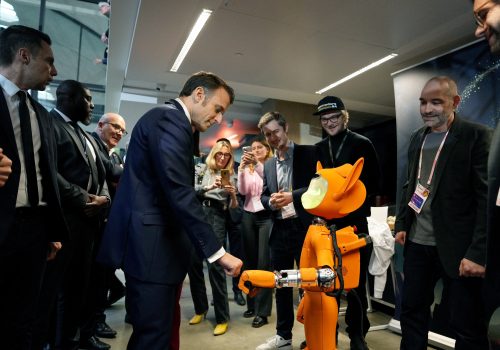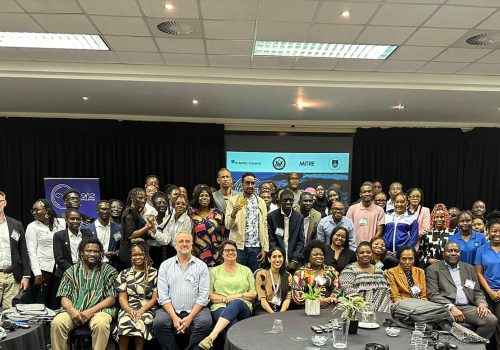Digital Forensic Research Lab
Wed, Feb 26, 2025
Cross-platform, multilingual Russian operations promote pro-Kremlin content
The Russian influence operations Doppelganger and Operation Undercut utilized several tactics to spread content on X, TikTok, 9gag, and Americas Best Pics and Videos
Wed, Feb 26, 2025
Zaporizhzhia Nuclear Power Plant and cycles of nuclear hysteria
Official channels, pro-Russian bloggers, and networks of inauthentic social media accounts claim that Ukraine is preparing to attack nuclear power facilities
Mon, Feb 24, 2025
Ukrainian biolabs: the never-ending narrative
The narrative about US-funded biolabs in Ukraine has been a regular weapon in the propagandist arsenal for over a decade. Now, it is seeking new avenues for growth
Mon, Feb 24, 2025
What the TikTok ban and Xiaohongshu’s brief popularity reveal about US-China relations and their tech sectors
Influx of US users to RedNote amid TikTok ban limbo presents propaganda opportunities and censorship challenges for China
by Kenton Thibaut, Ryan DeVries
Thu, Feb 20, 2025
The Musk Effect: Assessing X’s impact on Germany’s election discourse
Weidel-Musk interactions drove a significant portion of AfD's X engagement, with data showing a high volume of English-language accounts contributing to the party's increased reach on the platform
by Mark Scott, Oliver Marsh
Tue, Feb 11, 2025
Analysis: At the AI Action Summit, bragging rights for hosts but limited opportunities for stakeholders
Hosting an international tech summit brings great prestige, but direct engagement with stakeholders would have been more constructive
Tue, Feb 11, 2025
Analysis: AI Summit emphasizes innovation and competition over trust and safety
Doubling down on competition and economic growth marks a significant change in AI policymaking that previously focused on safety.
by Mark Scott
Wed, Feb 5, 2025
Assad’s silent network: Syrian influence operations in Latin America
Assad regime effectively exploited the region's existing disinformation networks, inserting narratives into popular sociopolitical causes
Fri, Jan 17, 2025
National Security Memorandum (NSM) on Artificial Intelligence: Democracy + Tech Initiative Markup
On October 24, 2024, the Biden Administration released its National Security Memorandum (NSM) on Artificial Intelligence. Read along with AC Tech Programs staff, fellows, and industry experts for commentary and analysis.
Fri, Dec 20, 2024
AI tools used in Kenya to discredit protesters and allege Russian connections
The pro-government campaign appears to involve a marketing firm that employs influencers
by Ali Chenrose
Fri, Dec 20, 2024
Partnering to counter information manipulation in South Caucasus and Eastern Europe
Project MUGA (Moldova, Ukraine, Georgia, Armenia) is led by the INFO OPS Poland Foundation in partnership with the Atlantic Council’s Digital Forensic Research Lab.
Fri, Dec 20, 2024
In It to Win It: Understanding Cyber Policy through a Simulated Crisis
Competitors and judges from the Cape Town Cyber 9/12 Strategy Challenge share their perspectives on the competition's impact on the African cybersecurity landscape.













